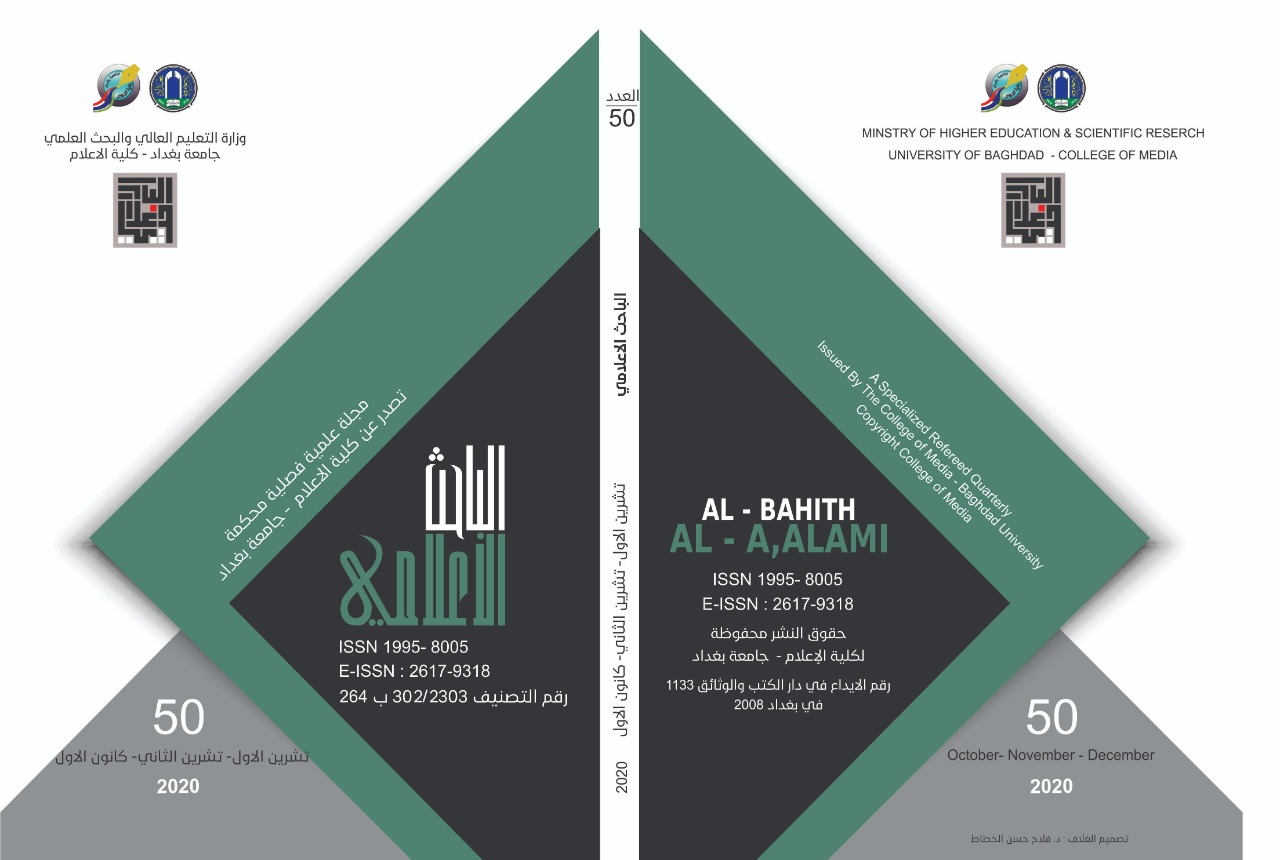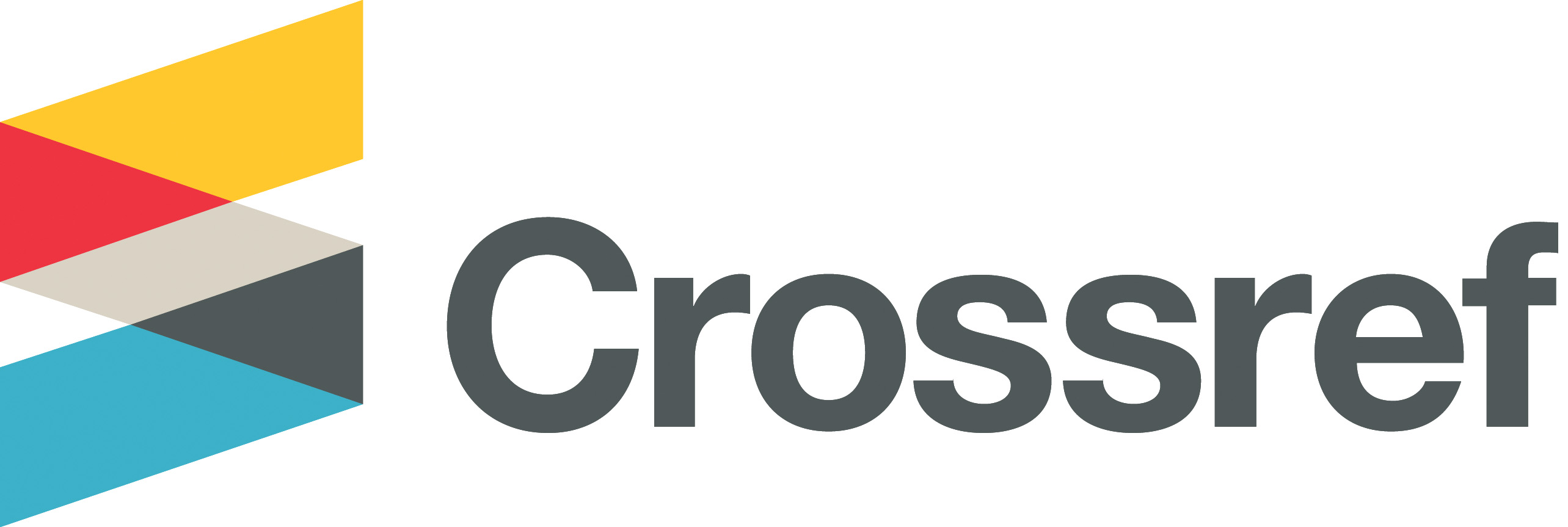Qualitative Researches in Media and Communication Sciences: Theoretical Highlights and Applied Pathways
DOI:
https://doi.org/10.33282/abaa.v12i50.709Keywords:
Qualitative Research - Communication - EpistemologyAbstract
The debate on the methodology of media and communication research is no longer subject to the logic of the contradiction between the quantitative and the qualitative approach, nor the logic of the comparison between them. The nature of the topics presented for research, the problems they raise, the goals to be achieved from the research, and the epistemological positioning of researchers are among the critical factors that dictate the appropriate approach or methodological approaches to conduct their research. This positioning means the implicit philosophical principles upon which any researcher relies and which determine the path he/ she takes to produce scientifically approved knowledge. The method of the researcher's access to the phenomenon considered and the aim of its study are what controls his/ her epistemological position.
Therefore, it can be said that we reduce the debate concerning the methodology of scientific research if we limit the difference between the quantitative and qualitative approach to saying that the first depends on numbers and the second depends on words. The difference between them is philosophical and epistemological.
If we are satisfied that the qualitative research allows for a comprehensive understanding of phenomena and delves deep into the analysis of social data; and that quantitative research is a form of scrutiny of the surface of social facts, then defining the specificity of qualitative research requires approaching more of its philosophical and epistemological framework
Downloads
References
المنظمة العربية للترجمة، الطبعة الرابعة، لبنان.
• Anadón. M; Guillemette. F ):20000( La recherche qualitative
est-elle nécessairement inductive? Revue Recherches
qualitatives– Hors Série 5
• Bourdieu P ) 1973( : l›opinion n›existe pas, Les temps
moderenes, Janvier
• Bourdieu. P, Chamboredon. J-C, Passeron. J-C) 1983 (
: Le métier de sociologue, mouton, Paris.
• Díaz Noci. J ,، Aguad.T, Juan M, Edo Bolós. .Cِ … Meso
Ayerdi. K ( 2007): Journalisme numérique: théorie,
méthodologie et critères d›analyse. International Association
for Media & Communication Research (IAMCR)
at UNESCO
Paris – 23-25 Juillet
• Dumez H. ) 2011 ( :Qu›est-ce que la recherche qualitative
?- Le Libellio d›Aegis, , 7 (4 - Hiver)
• Habermas, J. (1987). Théorie de l›agir communicationnel.
Paris : Fayard.
• Kalinowski. I ) 1997 ( « Hans-Robert Jauss et l’esthétique
de la réception », Revue germanique internationale n 8.
• Le Saulnier.G ( 2013( :La lecture de la presse en ligne.
L›appropriation des contenus d›actualité au défi de la
technique; retrieved Mayo; 11, 2020 from https://cutt.
ly/Wgpjzyd
• Liebes T, Katz. E )1993(: Six interprétations de la série
« Dallas» traduit de l›anglais par Maigret.E; Dayan.D;
revue Hermès; Editions .CNRS; France; N0 1
• Martin.S ( 2003): Vérité et objectivité journalistique:
même contestation? Les cahiers du journalisme; n 13-
printemps;
• Massé. P, Vallé. B ) 1992 (: Méthodes de collecte et
d’analyse de données en communication, Canada, éd
Presse de l’université de Québec ; Canada;;
• Mucchielli. A ) 2004 ) Le développement des méthodes
qualitatives et l’approche constructiviste des
phénomènes humains; Revue Recherches qualitatives
– Hors-Série – Numéro 1- Actes du colloque Revue
Recherches qualitatives et production de savoirs.
• M Ryfe. D ( 2017): A practice approach to the study of
news production, Journalism 19(4): March
• Palacios. M, Díaz Noci.J )2007 (Online journalism: research
methods. A multidisciplinary approach in comparative
perspective, Bilbao: Servicio Editorial de la
Universidad del País Vasco, Spain
• Strauss A L ( 1993) : quantitative analysis for social
Scientifics ; USA; Cambridge university press,
• Tameling K , Broersma M ( 2013) : De-converging
the newsroom Strategies for newsroom change and
their influence on journalism practice, International ,
DOI: 10.1177/1748048512461760
• Tuchman. G ( 2016): «Making News by doing Work:
Routinizing the Unexpected». Translated by Keda
Black under the title: « Travailler à la fabrique de l’information,
ou comment l’imprévu devient une routine»
. Les temporalités , Revue des sciences humaines etsociales; France; october; n023
• Tuchman. G ( 2002) Media institutions Qualitative
methods in the study of news in Klaus Bruhn Jensen
and Nicholas W.Jankowski: A Handbook of Qualitative
Methodologies for Mass Communication Research –
Routledge, USA
• Wallace. S ( 2003) The complexities of convergence:
Multi skilled journalists working in BBC regional multimedia
newsrooms - international communication gazette,
Volume: 75 issue: 1
Downloads
Key Dates
Published
Issue
Section
License
Copyright (c) 2020 Author

This work is licensed under a Creative Commons Attribution 4.0 International License.
Authors retain copyright and grant the journal right of first publication with the work simultaneously licensed under a Creative Commons Attribution License (CC BY 4.0) that allows sharing the work with recognition of authorship and initial publication in ABBA journal.


















